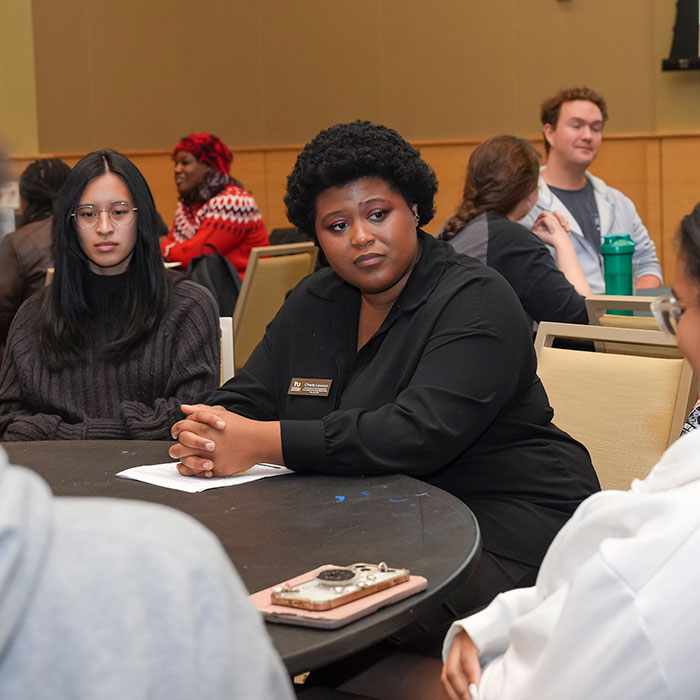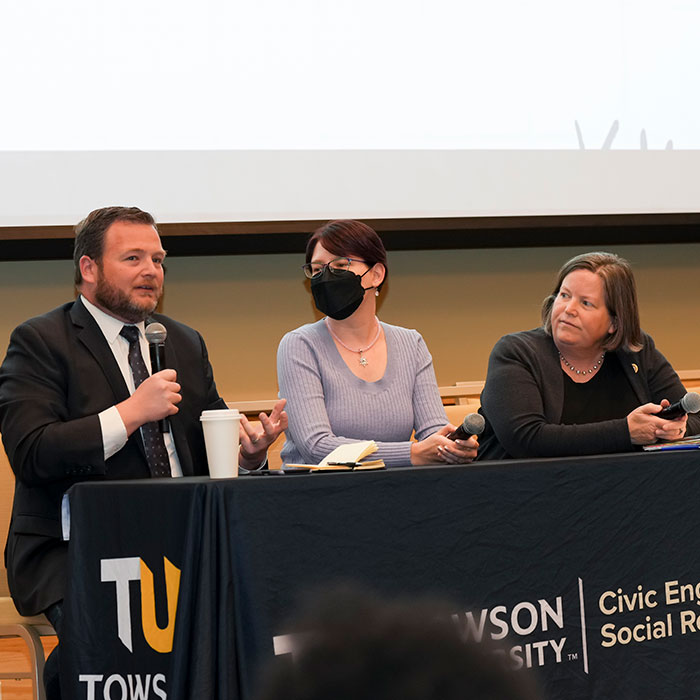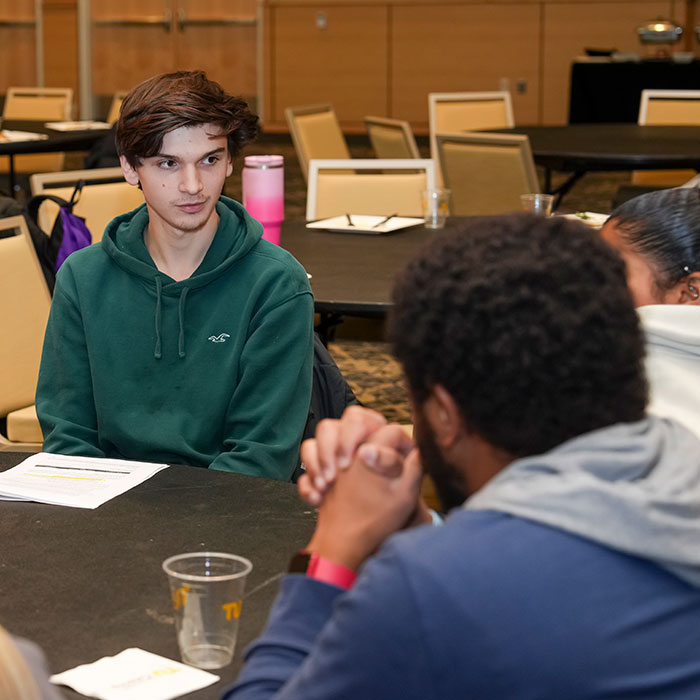Student Life
TU Community Conversations drive civic engagement on campus
A Q&A with Charis Lawson on the importance of civic discourse, community connection
On Wed., Dec. 4, students came together to discuss the 2024 general election and its impact on the TU community. They addressed anxiety, concerns and how they can continue to engage around social issues they care about. Charis (KAH-reese) Lawson, coordinator for civic engagement in the Office of Civic Engagement and Social Responsibility, and civic renewal fellows create a safe space for the conversations that give value to everyone’s voice.
“Everyone can feel like their voice is heard and that they can make an impact,” says Rikia Cornish, a civic renewal fellow. “Conversations like this spread awareness and create unity where there is division.”
Here, Lawson discusses the importance of civically engaging beyond voting and how TU Community Conversations help guide students in bridging connections and connecting to others passionate about the same issues.
What is your role?

At the Office of Civic Engagement and Social Responsibility, I help institutionalize efforts for civic engagement across campus and train students to better advocate for themselves and issues they care about.
Why is your role important to you and necessary for the university?
When I was growing up, I was taught my voice didn’t matter and my role in society was to be seen and not heard—that I should keep my head down and nod along. Through my education, I saw how my voice does matter and how connecting with others is an important stepping stool in making changes. In my position now, I get to be the support that I received that helped me realize my own importance in society.
For the university, I get to show students they have support and this institution cares about issues impacting the student community and beyond. I help students build a community and sense of belonging, showing them that it is a core value of TU. Through my office, we can make sure systems and structures exist to promote voter engagement, civic discourse and bring people together to focus on civic engagement as a whole.
What is a TU Community Conversation?
It is a space to gather and discuss an issue that is impacting society, specifically looking through a lens from TU. The discussion topics are selected by students and campus partners, which show the particular issue matters. We build up education through panels of community members and education partners and then hold small group conversations. The small group conversations build community amongst participants and determine where to go next by putting the knowledge learned from the panel into practice.
Tell us about the most recent community conversation.

The last conversation, After the Election: What’s Next, brought together local elected officials and TU faculty to discuss how the election impacted the TU community. It went really well. Students wanted to continue engaging in conversations like this and they connected with other participants to talk about politics, which can be tough to do successfully in this sociopolitical climate.
Why is it important for students to be civically engaged?
It’s often easy to conform to what you’re told and to the systems and structures in place, but that leads to disillusionment. Being civically engaged gives you a sense of imagination and helps you consider what the future can look like. It also helps you connect with the community and understand there’s other people who want to work toward solving the issue. Civic engagement and civic life are in everything and everywhere, from having a conversation to starting a club focused on something you’re passionate about. It all starts locally, where you are right now.
How do you avoid getting disgruntled if you don’t see change?
It’s okay to feel disgruntled. You should have space for reflection because it prevents burn out and allows you to consider next steps. Change doesn’t happen overnight. But don’t discount the small wins either. Feeling sad and discouraged is normal, but don’t let it stop you from continuing to move forward.
What advice do you have for students when it comes to civic engagement?
Connection is everything. Building up your community is so important because change doesn’t happen alone. Also, be specific about the type of change you want to see and use your personal strengths to move toward a solution. Finally, build up your education. We often get so excited for action that we don’t take the time to fully educate ourselves on the issue.
